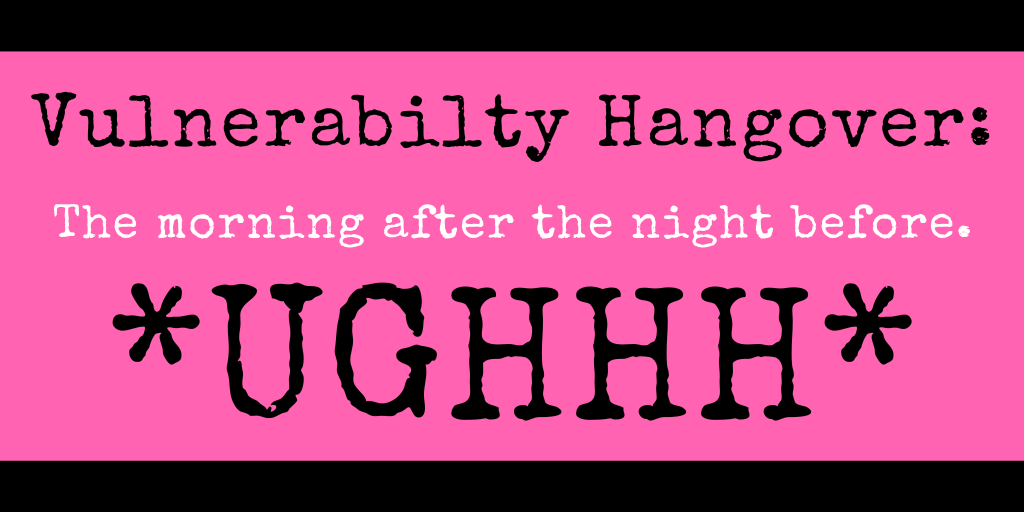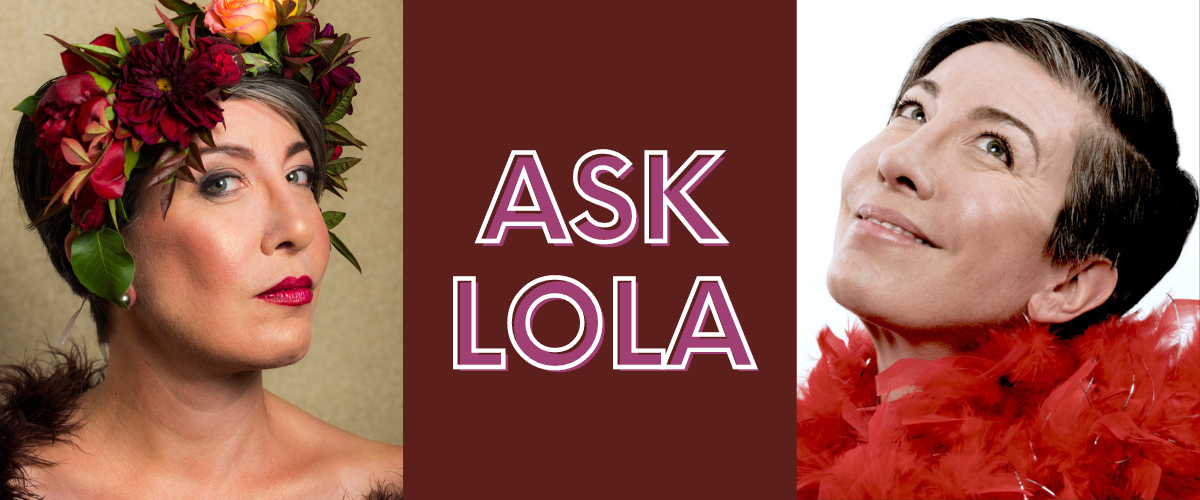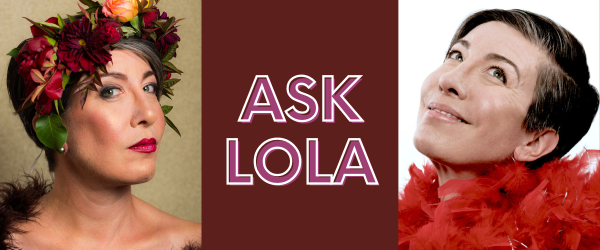Hi Sexy!
Last month, a reader wrote me about crashing emotionally after giving an interview to the media. So this month, I want to dive deeper into the issue of vulnerability hangovers, a term coined by Dr. Brené Brown, referring to those cringey feelings of shame and fear that can come rushing up after taking an emotional risk.
This can include, but isn’t limited to:
- Speaking publicly
- Attending social gatherings and partying
- Coming out to someone
- Sex and other intimate sharing
The Body Keeps The Score
To start with, it can be helpful to understand that there’s usually a physiological component to coming down, independent of anything you said or did. Anytime we’re activated or excited, our body releases stress hormones, including adrenaline and cortisol, involved in flight/fight responses.
Depending on the situation, say, having sex or dancing, other hormones might be involved as well, including endorphins, dopamine, and serotonin which can override pain, lower inhibitions, and make us feel euphoric. These peaks and valleys can be exacerbated by drugs and alcohol. Some of us use substances to overcome social anxiety, which can feel great in the moment, but contribute to a hangover the next day.
It takes time for our nervous system to settle down again, resulting in a bottoming-out sensation. This is nothing more than our bodies and brains recalibrating, and there’s no need to attach any kind of story to it. Try to keep that in mind in the moment, knowing this too shall pass.
However, sometimes in elevated states we act in ways we wish we hadn’t. W
What to do when we regret what we did?

Identify Your Feelings
This first step can be the hardest but is by far the most important: simply let yourself feel what you feel, without judgement or blame.
Many of us want to run from these tender feelings, so we check out. Or else we magnify what might have been a simple misstep – or possibly nothing at all – into a huge crisis.
Taking the time to sit quietly and check in with ourselves, asking the question, “How do I feel right now?” goes a long way to building resilience and knowing we can tolerate those unpleasant emotions.
Self-Soothing + Self-Compassion
The next step is to assume the role of being your own very best friend.
I’ve written extensively about self-compassion and self-soothing practices—you can read more here and here. Learning to comfort and care for yourself when you feel bad may be one of the greatest superpowers there is, and now is an excellent time to practice.
Get A Reality Check
Speaking of friends and getting an outside opinion is never a bad idea. Explaining what happened and what you’re feeling to a trusted friend, therapist, or counselor, can help put both the situation and your reaction to it into better perspective.
Check In, Be Accountable
Once you’ve had a chance to get grounded, if you think the situation warrants it, now is the time to check in. Ask about any fallout from what happened. If it’s someone you’re close to, expressing your vulnerability can have a powerful effect.
Saying something like: “Hey, I feel like I kinda blew it yesterday and overshared/overstepped and feel bad about it. How are you feeling about what I said/did? Can we talk it through?” If your connection to this person is less intimate, like a casual acquaintance or coworker, then the check in can be less in-depth. Keeping it light, something like, “About the other night—are we good?” will suffice. Most of the time, whatever you think was so scandalous didn’t bother them at all! Or it registered in the moment, but they’ve forgotten about it or let it go. If someone says things are fine, believe them.
Sometimes it’s necessary to apologize and make amends. Relationships are built on rupture and repair – this is what we do as social animals. Trust that the other person wants to keep you in their life. By being proactive, making room to let others express their feelings, and taking responsibility for your actions, an awkward incident can strengthen, rather than destroy your friendship.
Lessons Learned
Vulnerability episodes can be powerful teachers.
Over time, we get better at knowing where and when it’s acceptable for us to show different sides of ourselves. We can also sense when we need to protect ourselves. Most importantly of all, we come to know deep in our bones that even if we mess up, no matter how uncomfortable things get, they’re just emotions. These moments don’t last, and they are survivable.
One of my favorite quotes of all time is from the poet Rilke, and speaks directly to this:
Let everything happen to you:
Beauty and terror.
Just keep going.
No feeling is final.
Until next time, be sweet to yourself.
—LolaD.
Lola Davina is a longtime veteran of the sex industry and author of “Thriving in Sex Work: Sex Work and Money,” her follow-up to the formative “Thriving in Sex Work: Heartfelt Advice for Staying Sane in the Sex Industry,” is available wherever books are sold. You can find audio versions located at Audible, iTunes and Awesound.
Contact Lola at Lola.Davina@ynotcam.com and visit her on Twitter at @Lola_Davina.










